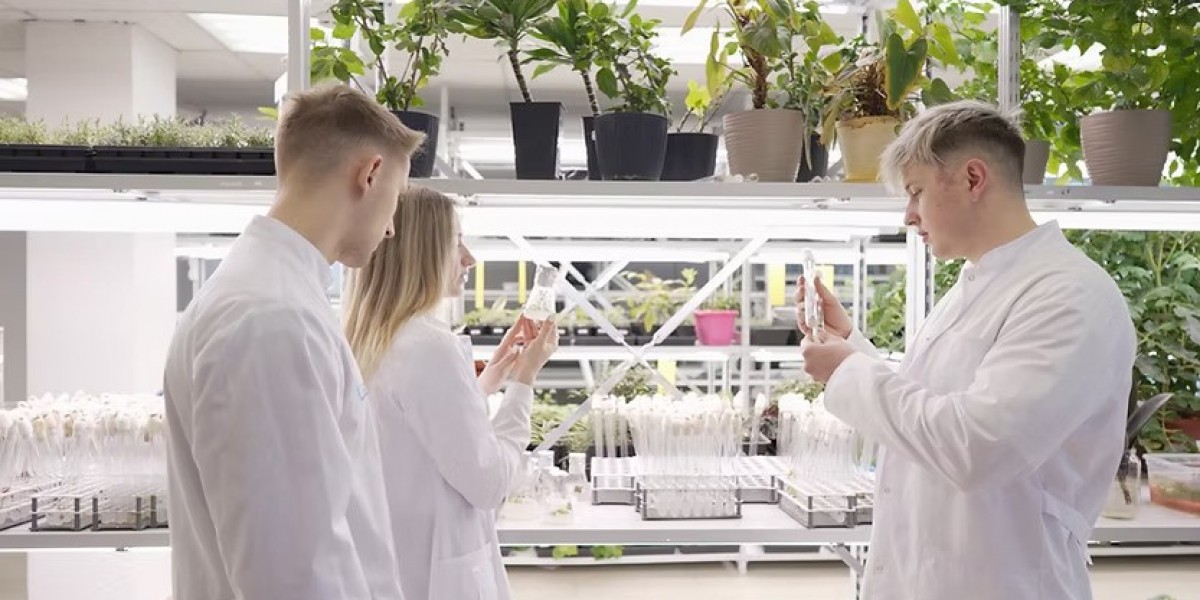Agriculture has long been the backbone of human civilization, but the increasing dependence on synthetic chemicals has come at a cost. Soil degradation, water contamination, and declining biodiversity are some of the most pressing challenges faced by modern farming. As the demand for food rises with a growing population, the pressure to balance productivity with sustainability has never been greater. This is where biofertilizer suppliers play a vital role. They provide farmers with natural, eco-friendly alternatives that enhance soil fertility while aligning with the global push toward zero-waste agricultural systems. By minimizing reliance on harmful inputs and promoting the use of organic materials, these suppliers contribute to creating closed-loop farming cycles that generate minimal waste and maximum productivity.
Understanding Zero-Waste Agriculture
Zero-waste agriculture is not merely about reducing visible waste but also about transforming farming into a circular system where resources are continually reused. It focuses on practices that return nutrients to the soil, recycle organic residues, and reduce dependency on non-renewable inputs. Unlike conventional farming, which often produces chemical residues and greenhouse gas emissions, zero-waste farming aims to create harmony between agricultural practices and natural ecosystems.
In such systems, crop residues can be turned into compost, livestock waste can enrich soil as manure, and microbial inoculants can replenish soil biodiversity. Biofertilizers—living microorganisms that improve nutrient availability—are at the heart of this approach. By supporting these methods, zero-waste agriculture provides not only sustainable food production but also healthier ecosystems and resilient farming communities.
The Concept of Biofertilizers
Biofertilizers are organic formulations containing beneficial microorganisms such as nitrogen-fixing bacteria, phosphate-solubilizing microbes, or mycorrhizal fungi. These organisms interact with plant roots, enhancing nutrient uptake and improving soil structure. Unlike chemical fertilizers, which offer short-term boosts at the expense of soil health, biofertilizers establish long-term fertility by restoring natural processes.
The benefits of biofertilizers include:
Nutrient Efficiency: Enhancing the bioavailability of nitrogen, phosphorus, and potassium in the soil.
Soil Health: Improving organic matter content and microbial diversity.
Reduced Pollution: Limiting chemical runoff and water contamination.
Economic Sustainability: Offering cost-effective alternatives to synthetic inputs.
By integrating biofertilizers into farming practices, zero-waste agriculture becomes achievable, as the system encourages nutrient cycling and minimizes environmental damage.
The Role of Biofertilizer Suppliers
The journey toward zero-waste agriculture would not be possible without the active involvement of biofertilizer suppliers. These suppliers function as the bridge between research-driven innovations in agricultural science and practical adoption by farmers. Their contributions extend beyond distribution; they also shape education, awareness, and accessibility in the agricultural sector.
1. Ensuring Product Availability
One of the major barriers to sustainable farming has historically been the lack of access to eco-friendly alternatives. Biofertilizer suppliers ensure that farmers in both urban and rural areas can readily obtain high-quality microbial inputs. By strengthening supply chains, they support the widespread adoption of zero-waste practices.
2. Maintaining Quality Standards
The effectiveness of biofertilizers depends heavily on their quality. Suppliers play a vital role in ensuring that products meet stringent standards of microbial viability and effectiveness. This safeguards farmers from ineffective formulations and boosts confidence in natural farming solutions.
3. Promoting Awareness and Training
Many farmers are unaware of the benefits of biofertilizers or hesitant to move away from traditional chemicals. Suppliers often provide training programs, field demonstrations, and workshops to showcase the tangible benefits of biofertilizers in improving yields while reducing ecological footprints.
4. Supporting Local Production Models
Suppliers can collaborate with local cooperatives and communities to encourage decentralized biofertilizer production. This not only reduces transportation costs and emissions but also fosters local employment and community-driven sustainability.
5. Driving Innovation in Application
Modern suppliers are also investing in new technologies for seed treatment, foliar sprays, and soil inoculation to make biofertilizers easier to apply. By developing user-friendly solutions, they increase adoption rates and integrate biofertilizers into diverse farming systems.
Biofertilizer Suppliers and Waste Reduction
Zero-waste agriculture thrives on reducing inefficiencies. Biofertilizer suppliers contribute in the following ways:
Utilizing Organic Waste: Many biofertilizer formulations are produced using agricultural or industrial waste products, ensuring resource efficiency and recycling.
Minimizing Chemical Dependency: By offering alternatives, they reduce the amount of non-biodegradable residues entering soil and water systems.
Promoting On-Farm Recycling: Suppliers often encourage farmers to integrate crop residues into biofertilizer-based compost systems, thereby creating closed nutrient loops.
In this way, suppliers directly contribute to minimizing waste at both production and consumption stages of the agricultural cycle.
Economic and Environmental Impact
The impact of biofertilizer suppliers extends to both economic and environmental domains.
Economic Benefits: Farmers save money on costly synthetic fertilizers while maintaining or even increasing yields. Additionally, biofertilizers enhance soil health, reducing the need for future remediation.
Environmental Benefits: Healthy soils absorb more carbon, improving climate resilience. Reduced chemical dependency decreases water pollution, while biodiversity flourishes in balanced ecosystems.
By fostering these benefits, suppliers are not just distributors but key stakeholders in reshaping global agricultural systems.
Overcoming Challenges in the Sector
While the role of biofertilizer suppliers is pivotal, several challenges need to be addressed:
Farmer Resistance: Many farmers still prefer chemical fertilizers due to immediate visible results. Overcoming this requires education and proof of long-term benefits.
Storage and Shelf Life: Microbial products are sensitive to temperature and storage conditions, necessitating better infrastructure.
Regulatory Standards: Inconsistent regulations can make it difficult for suppliers to guarantee quality across markets.
Market Competition: The dominance of synthetic fertilizer industries often limits the growth of biofertilizers.
Addressing these challenges requires collaboration among researchers, policymakers, and suppliers to ensure biofertilizers can fulfill their potential.
Toward a Sustainable Future
As global agricultural systems evolve to meet sustainability targets, the role of biofertilizer suppliers becomes even more critical. By aligning with principles of zero-waste agriculture, they help create farming systems that conserve resources, enhance biodiversity, and ensure food security. The increasing adoption of biofertilizers also signals a shift in consumer demand, where end-users prefer food grown through environmentally conscious practices.
Final Thought: The Path Forward with Top Fertilizer Companies
Zero-waste agriculture is not an abstract concept but an achievable reality, largely thanks to the efforts of biofertilizer suppliers who provide the tools for farmers to embrace sustainable practices. Their work supports the transition from chemical dependency to natural, regenerative farming systems that protect both people and the planet.
As the agricultural sector continues to innovate, even top fertilizer companies are recognizing the need to integrate eco-friendly solutions into their portfolios. This convergence of sustainable suppliers and large-scale industry players offers hope for a future where farming achieves both productivity and environmental harmony.








